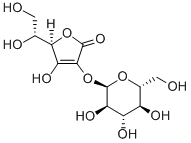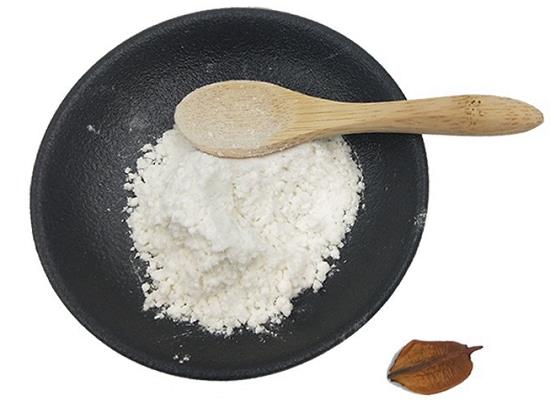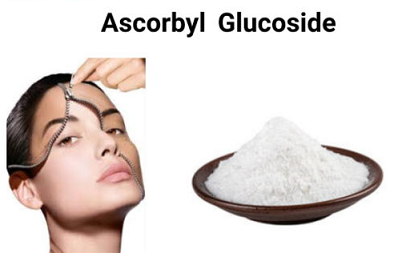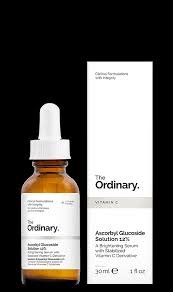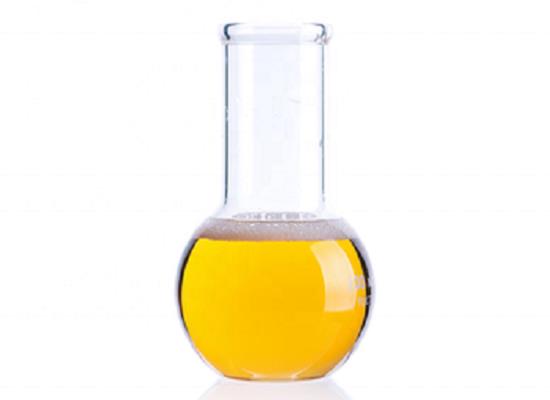Ascorbyl glucoside: activities and side effects
General Description
Ascorbyl glucoside is a potent antioxidant that scavenges free radicals and protects the skin from oxidative stress. It works synergistically with other antioxidants to enhance their efficacy, promoting overall skin health and reducing signs of aging. This ingredient also inhibits melanin production, making it effective in treating hyperpigmentation and achieving an even skin tone. Additionally, ascorbyl glucoside stimulates collagen production, resulting in stronger and smoother skin. However, it's important to note possible side effects such as increased sun sensitivity and allergic reactions. Care should be taken when using products containing ascorbyl glucoside, especially in conjunction with certain medications. Overall, it is a versatile compound with various benefits for skincare.
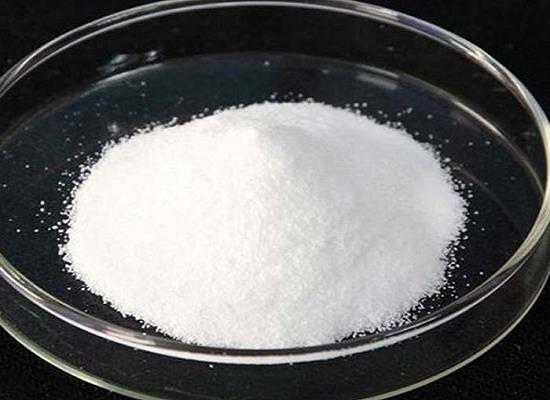
Figure 1. Ascorbyl glucoside
Activities
Antioxidant activity
Ascorbyl glucoside, along with other antioxidants, can be likened to Pac-Men scavenging for free radicals that are generated by exposure to UV rays and pollution, which can damage the skin. Antioxidants play a crucial role in neutralizing these harmful free radicals and protecting the skin from oxidative stress. As a potent antioxidant, ascorbyl glucoside works effectively in combination with other commonly used antioxidants like vitamin E or ferulic acid due to their synergistic effects. By working together, these antioxidants can enhance each other's efficacy and provide superior protection against free radicals. This antioxidant activity of ascorbyl glucoside helps promote overall skin health, reduce the signs of aging, and mitigate the negative effects of environmental factors on the skin. Incorporating ascorbyl glucoside into skincare routines, either alone or in combination with other antioxidants, can be beneficial for maintaining youthful-looking and healthy skin. 1
Inhibit melanin production
Ascorbyl glucoside exhibits the ability to inhibit melanin production, which makes it a valuable ingredient for addressing various skin concerns related to hyperpigmentation, uneven skin tones, and age spots. Upon conversion to l-ascorbic acid, ascorbyl glucoside interferes with the melanin production process by preventing the activity of an enzyme called tyrosinase, which plays a crucial role in this process. By inhibiting melanin production, ascorbyl glucoside can help fade existing dark marks and discourage the formation of new ones. This property makes it particularly useful for individuals seeking to treat hyperpigmentation issues and achieve a more even skin tone. It's important to note that individual results may vary, and it is advisable to consult with skincare professionals for personalized recommendations on incorporating ascorbyl glucoside into a skincare routine to target specific concerns related to melanin production. 2
Promote collagen production
Increased collagen levels can contribute to stronger, smoother, and less-wrinkled skin. Ascorbyl glucoside plays a vital role in this process by converting into l-ascorbic acid, which stimulates collagen production. However, the effectiveness of topically applied ascorbyl glucoside in achieving these benefits is still a subject of debate. Dermatologists generally consider it to be an excellent anti-aging ingredient with multiple advantages. While the precise extent of its benefits when used topically remains uncertain, it is widely recognized as a versatile and beneficial compound for addressing various signs of aging. It's important to note that skincare results may vary depending on individual factors such as skin type, condition, and overall skincare routine. Consulting with dermatologists or skincare professionals can provide personalized guidance on incorporating ascorbyl glucoside into a skincare regimen for optimal outcomes. 3
Side effects
Ascorbyl glucoside is generally considered safe when used in appropriate amounts, but there are potential side effects to be aware of. One possible side effect is increased skin sensitivity to sunlight, which can lead to sunburn or phototoxic reactions. It is advisable to use sunscreen when using products containing ascorbyl glucoside to protect against this effect. Individuals with sensitive skin or allergies may also experience allergic reactions such as redness, swelling, itching, or rash. Additionally, large doses of ascorbyl glucoside may cause gastrointestinal upset, including abdominal pain, nausea, diarrhea, or constipation. It is important to note that ascorbyl glucoside may interact with certain medications, especially those that increase bleeding risk or blood thinners, potentially intensifying their effects. 4
Reference
1. Liu Y, Liu C, Li J. Comparison of vitamin C and its derivative antioxidant activity: evaluated by using density functional theory. ACS Omega, 2020, 5(39):25467-25475.
2. Telang PS. Vitamin C in dermatology. Indian Dermatol Online J, 2013, 4(2):143-146.
3. Pullar JM, Carr AC, Vissers MCM. The roles of vitamin C in skin health. Nutrients, 2017, 9(8):866.
4. Safety Assessment of Ascorbyl Glucoside and Sodium Ascorbyl Glucoside as Used in Cosmetics. cir-safety, 2019.
Related articles And Qustion
See also
Lastest Price from Ascorbyl glucoside manufacturers
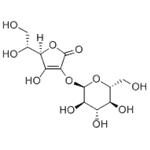
US $0.00-0.00/kg2025-09-08
- CAS:
- 129499-78-1
- Min. Order:
- 1kg
- Purity:
- 98%
- Supply Ability:
- 1

US $0.00-0.00/KG2025-08-19
- CAS:
- 129499-78-1
- Min. Order:
- 1KG
- Purity:
- 99%
- Supply Ability:
- 20ton
